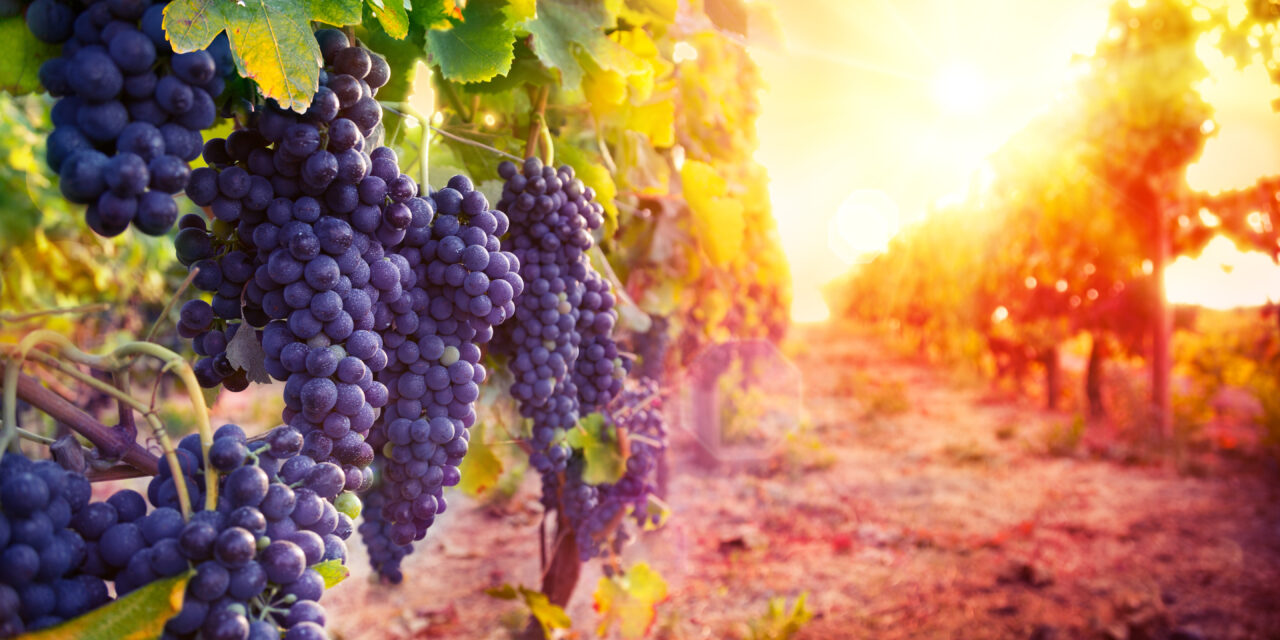Lessons from a Vineyard
By Dan Qurollo
Burke County
In John 15:1-8, Jesus described Himself in the last of the seven “I AM” statements when He said, “I am the true vine, and my Father is the husbandman.” The imagery of vines was quite familiar to Jews. Prior to Israel possessing the land, Palestine was known as a land of vineyards. When the spies returned, they brought back massive clusters of grapes that required two individuals to carry them. The grapes of Hebron are still today considered the finest in the Holy Land. A golden vine hung above the entrance to the temple as Jerusalem.
This statement would naturally remind the Jews of their relationship with God. Throughout the Old Testament, Jesus frequently described Israel as a vine that had been delivered from Egypt and planted by God. This is seen in passages such as Psalm 80, Isaiah 5, and Ezekiel 19 to name a few. Unfortunately, Israel failed to fulfill their God-intended purpose. Rather than being this fruitful vine, Israel was condemned as a wild vine that failed to produce what God had intended. In contrast, Jesus described Himself as the “true vine.” The word true is significant, for it describes Jesus as the real or authentic vine. As such, He is the fulfillment of the ideal vine.
The Bible also describes the Father as the husbandman, a term that describes a gardener or one who tended to the vineyard. His role is one of extreme importance. The gardener is responsible for the overall well-being of the vine; as such, He alone makes decisions for the well-being of the individual branches which then contribute to the overall health of the vine. He is responsible for the quantity of fruit. Therefore, He does all He can to enhance the life of the vine so that it might produce more fruit. He is also responsible for the quality of the fruit. He does not just desire quantity; he desires quality. From this role, two important principles emerge:
- The gardener determines the type and extent of care the branch receives
No branch determines the type of care it receives. Though the removal of dead branches and the pruning of live branches may not be desirable, no branch is capable of dictating the level or type of care it receives. In fact, the branch must merely submit itself to the will of the gardener. Our natural instinct is to object to this. We wrongly believe that we are in control or that we know what is best. God’s way is always best.
- The care of the vine is governed by the nature of the gardener.
Though we may often struggle with the insecurity that comes by simply trusting our care to someone else, our fears should be alleviated when we understand that the Father’s care of the vine is always governed by His nature. Consider just a few attributes of the Father and their implications for His care as the Gardener.
God the Father is omniscient; therefore, His care is always best. There is no detail about our lives of which He is ignorant. He knows all things equally and completely, including both the internal and external dimensions of our lives. He knows our thoughts as well as our actions. He knows our motives as well as our outward actions. Furthermore, He knows the end from the beginning. He knows what is best, and he knows how everything is going to work out, including the manner as well as the timing and which these things will occur (see Psalm 139:1-6).
The second attribute of God is that He is just; therefore, His care is always right. If God were capable of doing wrong, He could not be God. If God’s judgments were inaccurate or partial, He could not be God. I must reach the point in my life when I conclude that everything God does is right because He is just (cf. Psalm 18:30).
God is love; therefore, His care is always properly guided. Once again, we must understand that if God were to ever act in an unloving manner, He could not be God. To be clear, we must understand that God’s holiness balances His love, but everything God does is motivated by His love. It was His love that sent His Son to die on the cross for the sins of all mankind. Those individuals who have placed their trust in Him are the beneficiaries of His unending love (Romans 11:33). At times, it may seem as though God’s actions towards me are unloving. Get the Bible teaches us that even His chastisement is motivated by His love for His children (Hebrews 12:5-6).
Recognizing that the Gardener always acts in a manner consistent with His nature, we must realize our responsibility is never to question the Vine-dresser. Instead, our responsibility is to willingly submit to whatever He deems best, recognizing that His will is always best and is always governed by His nature.
_________________________________________
Dan Qurollo is the pastor of Morganton Baptist Church. You can visit them online at www.morgantonbaptist.net, on Facebook, or on Youtube.
Read more Christian News Here.
_________________________________________







